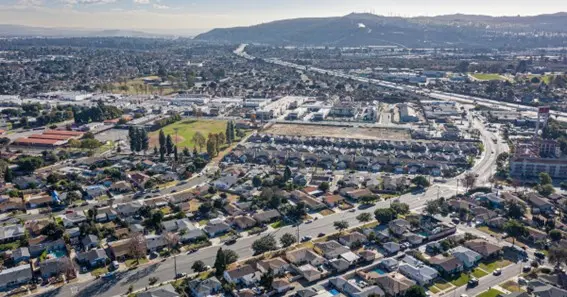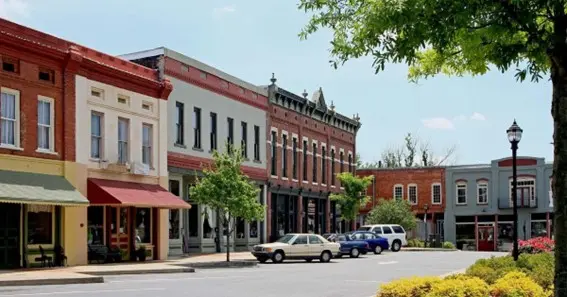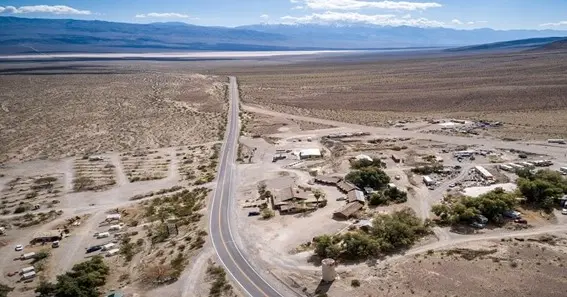What is an unincorporated community? An unincorporated community is a settlement without its own local government, governed instead by county or regional authorities. A hamlet without a city or town government is unincorporated. Instead, a county or regional government manages it. Because they have local administrations, these localities often differ from structured cities and towns. Knowing what unincorporated towns are like helps you comprehend regional government. In this article we discuss about what is an unincorporated community and more about it.
What Is An Unincorporated Community?
An unincorporated community is a settlement without its own local government, governed instead by county or regional authorities. Unincorporated towns are places where people live without a municipal corporation or local government. Thus, they have no municipal council, mayor, or local authority. Instead, the local county or regional government makes administrative decisions. This model differs from incorporated cities or towns, which have local governments that run many services and ordinances.
In unincorporated towns, the lack of a municipal government affects many aspects of life. For instance, unincorporated residents rarely have a role in local government decisions that affect them. Instead, county or regional officials, who may need help understanding these communities’ issues, address their needs. Thus, local challenges may need more custom solutions.
A Little Background On Unincorporated Settlements Is In Order

Unincorporated towns receive services from the county or regional government. To comprehend these communities’ uniqueness and challenges, you must understand what is an unincorporated community and how they work. Here are things to know about non-city or township communities.
Governance And Administration
County or regional governments operate unincorporated towns instead of local governments. County or regional residents decide public policies, rules, and community services. Even while this simplifies governance, it may not suit the group’s needs. County or regional officials may have to reconcile unincorporated community needs, which may indicate they focus less on one spot.
Government Job
In you read properly what is an unincorporated community , you should know In unincorporated towns, the county or regional government provides public services. Important services include police, fire, road, and trash collection. Because incorporated communities handle services better, residents may have less access to or quality of services. Unincorporated villages may rely more on county or private services than parks or libraries.
Zoning Rules
County officials set zoning in unincorporated areas, not cities. These places may have distinct land use and development than incorporated districts with municipal zoning. Zoning in a county may need to be more specific and thorough, as well as changing land use and construction. Unincorporated areas may have fewer land-use restrictions, which can affect the types and proximity of residences and businesses.
Paid Taxes
Unincorporated residents pay county or regional taxes, not municipal taxes. This could affect tax rates and public benefit spending. Although unincorporated areas don’t have city taxes, they pay county or regional taxes for vital services. Varying counties or areas have varying taxes, and public service levels rely on available funds.
Voting, Accountability

Unincorporated residents vote in county or regional elections, not city ones. This suggests they prefer county commissioners or supervisors to mayors or city council members. Local representation and power over choices can shift. Unincorporated places don’t have city or town governments; therefore, county or regional policies may not satisfy their needs.
Community Service
Recreation centers, libraries, and community centers may be scarce in unincorporated areas. Private or county agencies may provide these services. This may entail fewer local services and amenities than incorporated areas, where the government normally provides or pays for more. Unincorporated residents may have to travel to nearby incorporated regions for certain facilities or events.
Growth And Progress
If you know know what is an unincorporated community , you must know unincorporated villages may flourish differently from incorporated ones due to lax municipal laws. Without municipal planning rules, unincorporated areas expand slower or less controlled because county or regional planning processes apply. Community planning and infrastructure development may become less consistent when land use and growth patterns become more flexible.
Emergency Aid
County or regional agencies provide police and fire protection in unincorporated regions. Therefore, response times may be longer than in cities with specific municipal services. Because each county or regional government has varied resources and facilities, emergency services may need to be more available and effective. How much aid people get depends on where they reside and how well county or regional services manage situations.
Pros, Disadvantages
Living in an unincorporated neighborhood may have lower taxes and fewer laws. However, these benefits have drawbacks, like fewer neighborhood services and direct representation. Living in an unincorporated region has perks and cons depending on personal tastes and goals. Unincorporated communities may appeal to those seeking reduced taxes and fewer regulations. Residents who want more local services and influence may prefer incorporation.
Conclusion
Unincorporated areas are unusual for regional governments because they don’t have city governments. They have cheaper taxes and fewer laws, but public services, participation, and community development are issues. Understanding these processes helps you comprehend how unincorporated communities affect government and daily life. These communities’ future growth and quality of life will depend on their relationship with county or regional governments. In above we discuss about what is an unincorporated community and explore more about it.
FAQ
What Makes A Town Unincorporated?
Unincorporated towns have no city government. Instead, the county or regional government manages local services and administration.
Do Non-City Towns Have Police Departments?
Non-city or town locations get police services from the county police, which might affect service and response times.
Can Rural Residents Vote In Local Elections?
Instead of municipal elections, citizens vote in county or regional elections because their town has no government.
How Do Non-City Zoning Rules Work?
County zoning guidelines differ from city zoning in land use and building standards.
Who Provides Superior Public Services—Organized Or Unincorporated?
Municipalities provide more public services than unorganized areas, which receive them from the county or region.
Sources:
https://en.wikipedia.org/wiki/Unincorporated_area
https://www.sciencedirect.com/science/article/pii/S0277953621006249’










